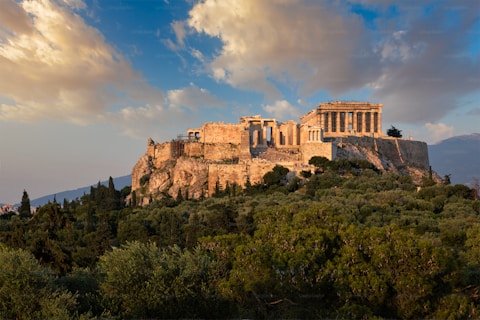Weather in Greece in January: Your Complete Guide
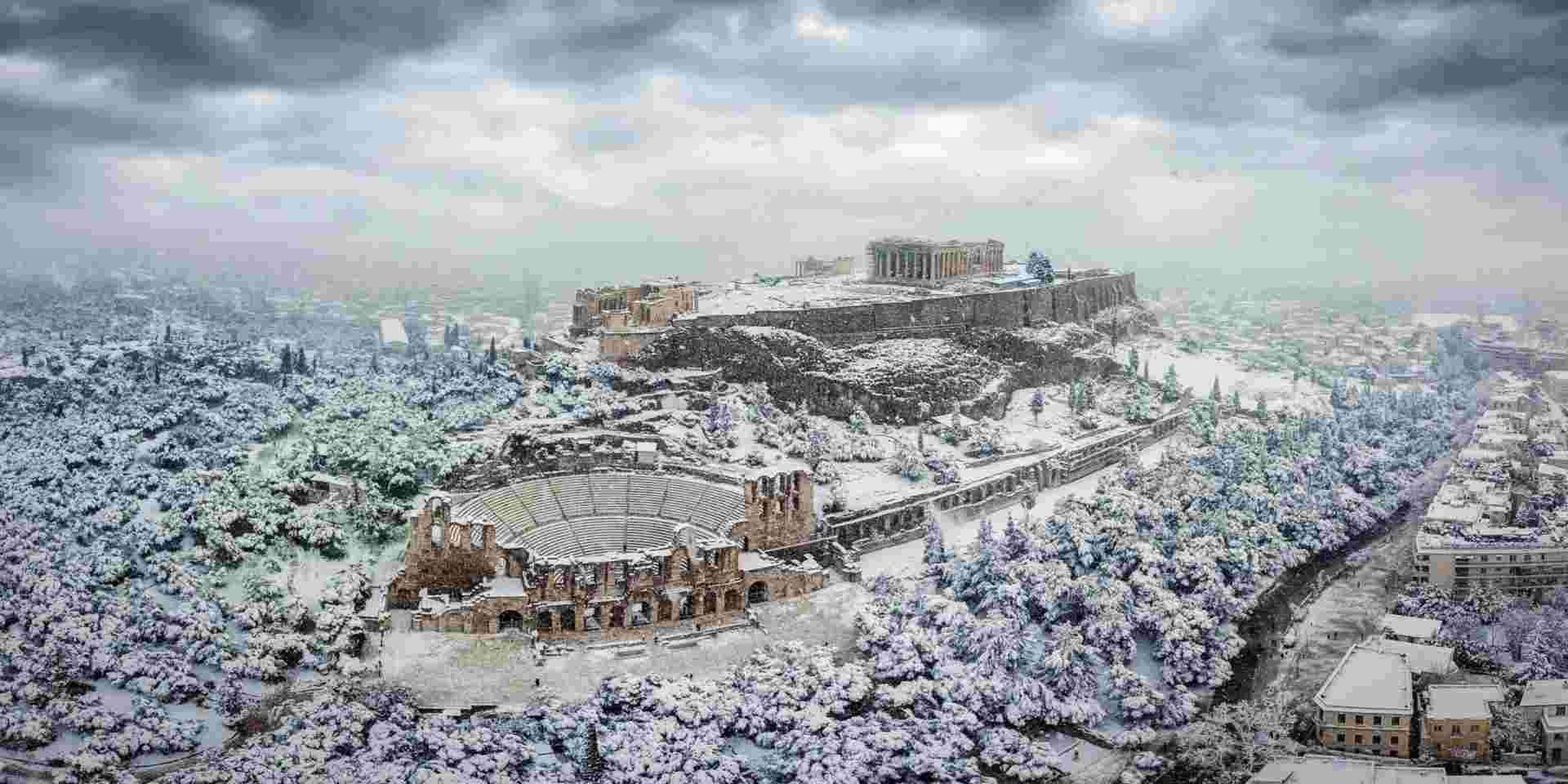
The weather in Greece in January usually has daily temperatures from 8°C (46°F) to 14°C (57°F). The northern parts are often cooler, with temperatures falling to about 6°C (43°F). In contrast, the southern areas are milder, with an average of around 10°C (50°F).
Greece is known for its sunny summers, but it has a special appeal in January. Many people think the weather isn’t nice, but January brings a different feel for visitors. The temperatures are cooler and it might rain sometimes. However, Greece is still a great place for those who want to explore its history and culture and enjoy a peaceful time away from the crowds.

Overview of Weather in Greece in January
January is usually the middle of winter in Greece. This month brings cooler weather and some rainy days, especially in the north. However, compared to other parts of Europe, the weather is still mild. Average temperatures are from 40°F to the mid-70s°F.
While January is one of the coldest months in Greece, remember that the weather can change a lot based on the area. Coastal places and islands usually have warmer weather than the higher lands. It is a good idea to bring extra layers of clothes. This way, you will be ready for changes in temperature and surprise rain.
Exploring the Temperature Range
The average high temperature in Athens in January is about 57°F. This is a nice time to visit historical places. But when the sun goes down, the average low can drop to around 41°F. So, it is important to wear warm clothes in the evenings.
When you visit the northern regions, especially the hilly areas, you should be ready for colder weather. The lows often fall below freezing. The mountains turn into a winter paradise. It is perfect for those who love winter sports.
Meanwhile, the southern islands, such as Crete, Rhodes, and Kos, have a warmer climate. The average high temperatures range from 54°F to 59°F. Swimming may not be the best choice, but these islands provide a nice getaway with good weather for outdoor activities.
Precipitation and changes in climate in different areas.
January is usually the wettest month in Greece. So, it’s a good idea to bring an umbrella. The northern parts, especially, get a lot of rain. You will see cloudy skies often. This rain helps create green landscapes and snowy mountains in the north during winter.
The southern islands have some rain, but they get more sunshine. A quick shower is soon followed by clear blue skies. This bright weather shows off the beautiful coastal scenery.
In January, wind can affect different places in the country. This is especially true near the coastlines. It’s smart to pack windproof jackets to help with the cold breezes. This is important, especially when you go for walks in the evening.
The warmest Greek island in January
While many Greek islands are cooler in January, Crete is the warmest. The average daytime temperature is about 59°F. Crete offers a milder climate for anyone wanting a Greek island vacation during the winter.
Crete is larger, which helps create different microclimates. The southern coast is warmer than the north. This makes it a good place for outdoor activities, visiting historical sites, and enjoying the winter sun.
While the smaller islands may not be as warm as Crete, they still have a charm in January. With fewer people around and a calm feel, they become great places for those looking for quiet in beautiful settings.

Destinations to visit in January in Greece
Greece in January lets you see its famous spots without the usual summer crowds. You can explore ancient ruins and visit charming villages. There is something for everyone, even with the cooler weather.
If you want to learn about history in Athens, take a romantic trip to Santorini, or enjoy island life in Crete or Corfu, January is a great time. You will see these popular places more deeply and have a closer experience.
Crete in January
Crete in January has a good mix of winter beauty and mild weather. The average daytime temperature is around 15°C, which makes it a nice place to visit. Even though it is the coldest month with highs of 16°C and lows of 9°C, Crete has lovely beaches and historic places to see. Since there are fewer people than in peak season, January is a great time to visit this Greek island. You can enjoy easy walks by the coast, check out ancient ruins, and taste Greek food without the summer crowd. Crete in January creates a calm spot for those who want an easy winter getaway.
Rhodes in January
Rhodes is famous for its Old Town and lovely beaches. In January, it has a special charm. Swimming may not be an option, but the weather is nice. The island is warm and sunny, making it a good time to visit old ruins and walk through beautiful villages.
The old city of Rhodes is a UNESCO World Heritage site. It takes visitors back in time. You will see tall walls, cobblestone streets, and impressive buildings. The Palace of the Grand Masters and the Street of the Knights show the island’s great past.
If you want amazing coastal views, drive along the island’s eastern side. You will see beautiful beaches, quiet coves, and lovely seaside towns.
Athens in January
In January, the average daytime temperature typically falls between 50℉ and 60℉, while nighttime temperatures drop to around 45℉. Although rainfall and wind speed are usually higher during this month, the weather remains generally mild and comfortable.
Athens, the history center of Greece, feels unique in January. There are fewer people around. This makes it a great time to visit famous places like the Acropolis, the Parthenon, and the Ancient Agora. You can enjoy these landmarks in a much closer and exciting way.
The Acropolis Museum is a modern building that amazes visitors. It takes you on an exciting journey through the Acropolis’s history. You can see ancient objects and enjoy stunning views of the city.
Beyond the old sites, Athens has a lively food scene. You can sit in traditional tavernas, enjoy tasty Greek food, and feel the kindness of the Greek people.
SEE ALSO: The Best things to do in Athens
Mykonos in January
Mykonos is known for its lively nightlife and beautiful beaches. In the winter months, it has a calmer feel. While the parties are quieter, January in Mykonos lets you enjoy the island’s charm without the busy crowds.
Light rainfall is common in January, but the mild climate compensates for the occasional wet days. Daytime temperatures typically peak between 55℉ and 60℉. In the evenings, the temperature cools to around 50℉, making it an ideal time to enjoy some tasty Greek cuisine in a cozy restaurant.
Santorini in January
In January, Santorini typically sees an average high temperature of about 14°C (57°F), with average lows around 10°C (50°F). Despite this, temperatures can dip even further, particularly during the night, and the island often experiences cold and windy weather.
Santorini is famous for its beautiful sunsets over the Aegean Sea. In January, it has a special kind of charm. The big crowds are gone, making it feel peaceful. The island’s impressive volcanic features and lovely villages make it a romantic place to visit.
Without many tourists, Santorini’s famous blue-domed churches and white houses look even better next to the caldera. Walking along the small streets of Oia or Fira is a wonderful experience. You can sip on local wine while taking in the great views. Enjoying tasty Greek food adds to the amazing memories of this romantic paradise.
Corfu in January
Daytime temperatures typically range from 50℉ to 59℉, while evenings usually cool down to around 43℉. Although there may be a few rainy days during the month, you can still look forward to plenty of sunny days to enjoy exploring the town.
Corfu, known for its green landscapes and clear waters, has a special charm in January. Even with more rainy days, the island’s beauty stands out with a bright emerald color. The rain only adds to the beauty of Corfu Town. Its Venetian buildings, cobblestone roads, and warm cafes offer a nice break from the weather.
Thessaloniki in January
Thessaloniki, Greece’s second-largest city, has a lively cultural feel in January. It has a rich history, busy markets, and a strong arts scene. Thessaloniki gives a warm and welcoming vibe even with the cooler weather.
The average low temperature in January is about 41°F. This means you should pack warm clothes to visit the city’s many historic places. These include the White Tower, the Rotunda, and the Arch of Galerius.

Reasons to Visit Greece in January
Visiting Greece in January gives you a new view of this beautiful country. You will find fewer crowds and maybe lower prices. January shows you another side of Greece. It is a time when peace is everywhere and cultural experiences are very important.
If you want a calm place to relax, an affordable trip, or a chance to enjoy local customs, Greece in January offers a very memorable time.
Celebrating the New Year Greek Style
January in Greece is a time to celebrate. The country welcomes the new year with open arms and old traditions. The happy atmosphere spreads quickly. The streets are filled with music, laughter, and joy.
One of the best Greek traditions is cutting the Vasilopita. This is a sweet bread with a coin hidden inside. People believe that whoever finds the coin in their piece will get good luck for the whole year.
From lively street parties and traditional dances to special church services and family meals, the New Year celebrations in Greece offer a special chance to see and take part in the country’s rich culture.
Enjoying Lower Tourist Crowds
January is a great time to visit Greece if you want a calm and real experience. There are fewer people around. This means attractions are not busy, lines are shorter, and life moves at a slower pace.
When you explore old ruins, walk through neat villages, or enjoy the feel of the place, there are not many big tourist groups around. This gives you a more special and deep experience.
Accommodation options are usually easier to find. Prices are also lower during the off-season. This makes January a great time to visit Greece for travelers who want to save money.
Special Events and Festivals in January
There are so many things to do in Greece all year around including since it is full of cultural experiences. The country has many local festivals and seasonal events to celebrate. These festivities give a special look into Greek traditions, customs, and beliefs.
One of the most important events in January is Epiphany, which is celebrated on January 6th. This holiday remembers the baptism of Jesus. It includes many customs, such as the blessing of the waters.
From traditional dances and music shows to local food stalls and religious parades, the special events and festivals in January bring more meaning and realness to a Greek winter trip.
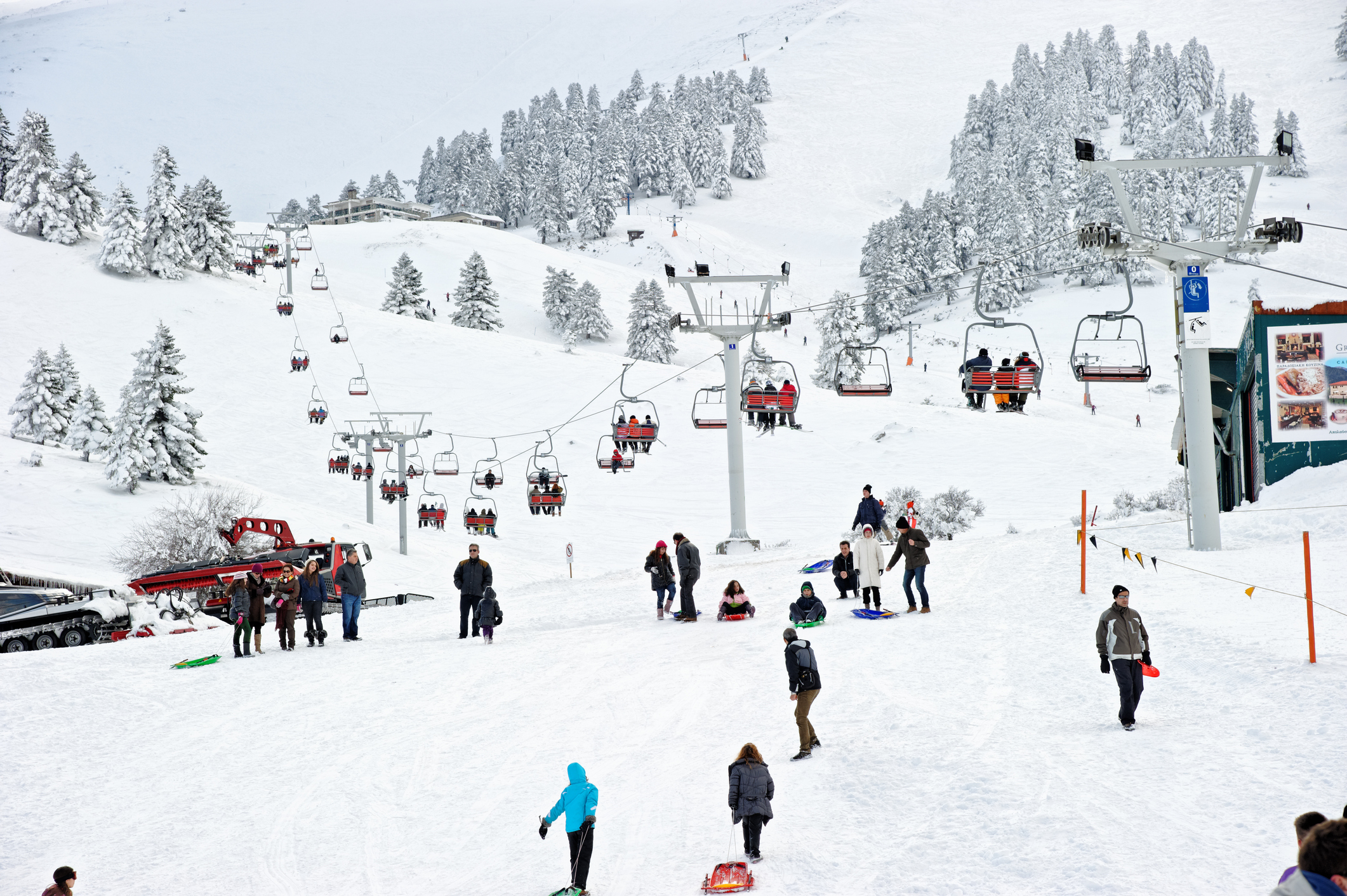
Experiences in Greece in January
Greece in January has many experiences beyond the usual summer fun. Enjoy the cooler weather and see a new side of this interesting country. You can ski in the mountains or enjoy the culture in the cities.
Outdoor Adventures in the Greek Landscape
Greece is known for its beaches and warm sun. However, its beauty shines in a new way in January. The cooler weather and some rain offer a great chance to explore hiking paths. You can find hidden waterfalls and enjoy the rough landscapes during this time.
The larger islands, like Crete and Corfu, have a wide range of hiking trails. These trails vary from easy walks by the coast to hard climbs in the mountains. The Samaria Gorge in Crete, which is a UNESCO Biosphere Reserve, is a place that nature lovers should visit.
Skiing in Northern Greece
For people who love winter sports, the northern regions of the country become a beautiful winter scene in January. Greece’s ski resorts have great slopes, amazing mountain views, and a warm feel.
There are slopes for everyone, from easy ones for beginners to tough black diamond runs. Ski resorts also provide cross-country skiing, snowshoeing, and more fun winter activities.
After a day on the slopes, warm up with hot chocolate or a Greek coffee in a cozy chalet. Enjoy the good times and fun feel of the mountains.
Seasonal Culinary Delights and Warm Drinks
Greek food is great in January. It offers hearty meals and warm drinks that make you feel cozy in the colder weather. You can enjoy classic soups and stews, tasty pies, and roasted meats. The flavors of Greece will surely make you feel good.
Indulge in classics like avgolemono, a smooth chicken soup with lemon and egg, or fasolada, a filling bean soup. For something sweet, try loukoumades, fried dough balls covered in honey and cinnamon.
Warm up from the inside with traditional Greek drinks like rakomelo. This is a strong mix of raki, honey, and spices. You can also try salepi. It is a sweet drink made from orchid flour.
Shopping and Sales in the City Centers
January is a great time to shop in Greece. Many stores have big discounts after the holiday sales. You can find good deals on clothing, accessories, souvenirs, and more, from designer shops to local markets.
Explore the busy shopping areas of Athens, Thessaloniki, or the bigger islands to find special items and local goods. You can find things like handmade ceramics and fabrics, olive oil, honey, and spices. There is something for everyone.
Don’t miss your chance to negotiate for the best prices at local markets. You can take in the lively atmosphere and feel the excitement of bargaining.
January in Greece offers many experiences. You can explore historic sites or enjoy seasonal food. The weather in Greece in January changes by region. This makes it a good time for outdoor fun or relaxing on the warmest island. With fewer tourists, January lets you dive into local culture and celebrations. You can choose to ski in Northern Greece or enjoy warm drinks in the city. Greece in January promises a great holiday. Celebrate the New Year in a Greek way and enjoy the beauty of this Mediterranean gem.
Feeling Ready?
From our blog

Visiting Athens with Kids: A helpful Guide
READ MORE
Paros for Seniors: Tips and Itinerary
READ MORE
Best Resorts in Greece for Families: Your Ultimate 2025 Guide
READ MORE
How to Enjoy Santorini for Seniors
READ MORE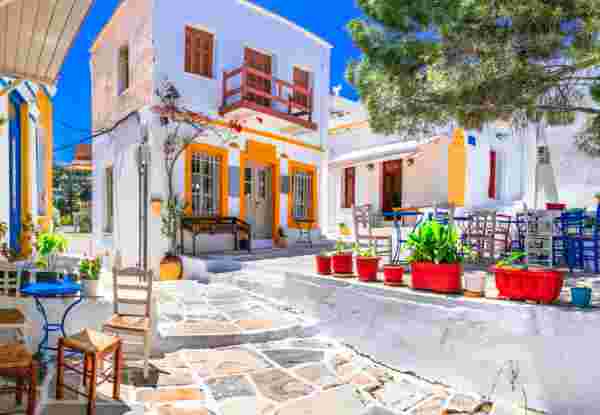
Honeymoon in Paros Island
READ MORE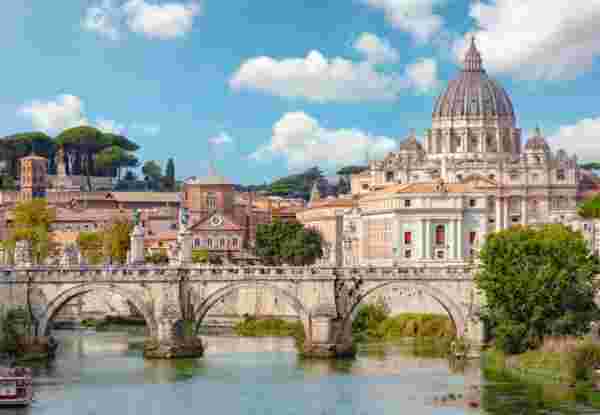
Rome Travel Guide: What to Do, When to go and Where to Go
READ MORE
The Best Greek Islands for Couples, According to a Luxury DMC
READ MORE
Discover Milan: Top Attractions
READ MORE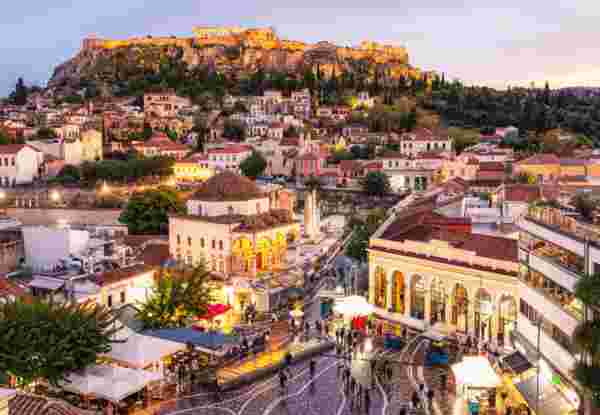
Athens in February Travel Guide
READ MORE
